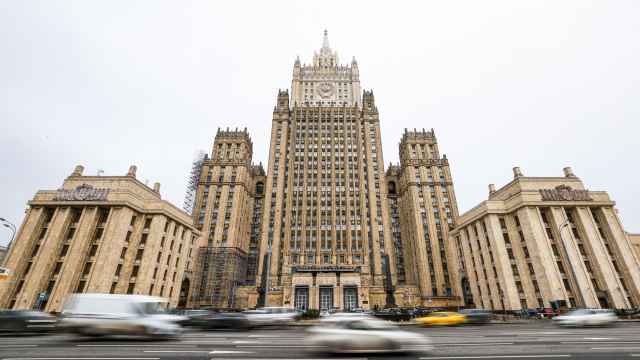The MT Conferences section did not involve the reporting or the editorial staff of The Moscow Times.

Eleanor Reeves
Senior Associate
Dentons London
Energy efficiency is a straightforward concept to grasp: using less energy to achieve the same result saves energy and money. Across the economy as a whole it can also reduce prices, enhance economic growth and competitiveness, increase the availability of energy, and cut carbon emissions.
Energy efficiency has often been a low priority for many consumers, businesses and governments, but priorities are changing. Rising energy prices, technological development and regulation have driven energy efficiency up the agenda. According to the International Energy Association, or IEA, Energy Efficiency Market Report 2013:
The energy efficiency global market in 2011 had an estimated value of $147 billion to $300 billion.
Two thirds of the economic potential to improve energy efficiency remains untapped in the period to 2035.
Energy Prices
Broadly speaking, the energy supply concerns of governments and businesses can be met by either increasing supply, or reducing the amount of fuel needed to produce the same output, i.e. energy efficiency. The key advantage of energy efficiency over increasing supply is that the former can also reduce carbon emissions.
However, emissions reduction only partially explains the recent surge in energy efficiency's popularity. Rising energy prices have also helped make a financially compelling case for energy efficiency, as rising prices increase operating costs for businesses and exert financial pressure on households.

Adam Brown
Senior Associate
Dentons London
Technology
There is renewed commercial interest in energy-saving technologies. Some of these are familiar, but still underexploited: for example, an industrial heat or power plant can be replaced with combined heat and power, or CHP, generation, saving huge amounts of fossil-fuel energy. Newer technologies open up opportunities in a wide range of markets, such as:
• using waste-derived materials as a substitute for raw materials in cement manufacture, the advantages of which include a reduction in energy consumption
• using oil and gas industry techniques to reduce electricity bills at data centres
• manufacturing fuel cells that could double the efficiency of fossil fuel use for generating heat and electricity
• using ground source heat and cooling, solar space heating and energy storage to reduce dependence on utility companies for electricity and heating by up to 80 percent
The newer technologies referred to above are all products being developed by the finalists of a recent British competition, who were selected for the robustness of their business plans as well as technical innovation. Britain's strong science base and grants from bodies such as the Technology Strategy Board have helped to develop some potentially world-leading products.
Regulation

Ekaterina Lapidus
Senior Associate
Dentons Moscow
Like Russia, the European Union has adopted an ambitious target to reduce energy consumption by 2020, alongside its targets for greenhouse gas emissions and increased use of renewables. The Energy Efficiency Directive (Commission Directive on Energy Efficiency) which aims to drive this reduction, comes into force this year. It will compel EU member states to promote energy-saving technologies on both the supply and demand sides, from industrial CHP and district heating schemes to smart grids and smart meters.
The British government has adopted an array of incentives to encourage energy saving. Enhanced Capital Allowances have been introduced to allow businesses write off up to 100 percent of the cost of certain energy-saving plants and machinery for tax purposes. Energy-efficient businesses may also be eligible for discounts of up to 90 percent on the Climate Change Levy, a levy on fossil fuel supplies. There are new and developing incentives for various forms of "renewable heat.'' Reducing electricity consumption may also give rise to eligibility for subsidies from Britain's new "capacity market."
In March, The European Council agreed to finalise the policy framework for energy and climate change between 2020 to 2030 by October 2014, which may include further measures to encourage energy efficiency.
The Combined Effect
The IEA has observed that energy efficiency is no longer being seen as "the hidden fuel," but potentially the "world's first fuel." Regulation, technological advancement and rising energy prices have converged to promote energy efficiency to the status of a major industry, which is a growing attraction to governments, businesses and consumers alike. Britain provides an example of the kind of opportunities now available in a sector that investors can no longer afford to ignore.
Regulation and Implementation of an Energy Efficiency Strategy in Russia
The energy efficiency strategy is an important initiative for the Russian energy sector. The Russian Energy Strategy up to 2030 (approved by RF Government Resolution of Nov. 13, 2009, No. 1715-r), or "Energy Strategy", states that the aim of energy policy is to achieve maximum efficiency in the use of natural energy resources and to maximize the energy sector's potential.Setting targets for the efficient use of resources will assist the modernization and technological development of the Russian economy. The Energy Strategy also prioritizes implementing a legislative package enabling energy efficiency at the federal and regional levels.
In addition to the Energy Strategy, the Federal Law on Energy Savings and Increasing Energy Efficiency (Federal Law No. 261-FZ of Nov. 23, 2009, on Energy Saving and Increasing Energy Efficiency and on Amendments to Certain Legislative Acts of the Russian Federation)or "Energy Savings Law", was adopted in 2009. This law provides specific targets for improving energy efficiency, tools for achieving the targets, and means of encouraging energy savings. In particular, the Energy Savings Law provides for a range of important state regulation measures: energy resource accounting, energy audits for organizations, and state monitoring of compliance with energy savings and energy efficiency legislation.
However, it should be noted that improvements in energy efficiency through the implementation of the provisions of both the Energy Strategy and the Energy Savings Law will depend mainly on the financing provided in this area, the introduction of a functioning system for monitoring compliance with the requirements of the Energy Savings Law, as well as support from the companies and citizens affected by these requirements.
The MT Conferences section did not involve the reporting or the editorial staff of The Moscow Times.
A Message from The Moscow Times:
Dear readers,
We are facing unprecedented challenges. Russia's Prosecutor General's Office has designated The Moscow Times as an "undesirable" organization, criminalizing our work and putting our staff at risk of prosecution. This follows our earlier unjust labeling as a "foreign agent."
These actions are direct attempts to silence independent journalism in Russia. The authorities claim our work "discredits the decisions of the Russian leadership." We see things differently: we strive to provide accurate, unbiased reporting on Russia.
We, the journalists of The Moscow Times, refuse to be silenced. But to continue our work, we need your help.
Your support, no matter how small, makes a world of difference. If you can, please support us monthly starting from just $2. It's quick to set up, and every contribution makes a significant impact.
By supporting The Moscow Times, you're defending open, independent journalism in the face of repression. Thank you for standing with us.
Remind me later.





